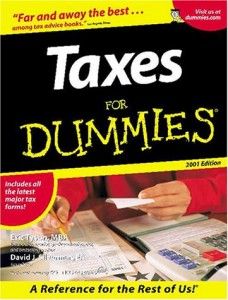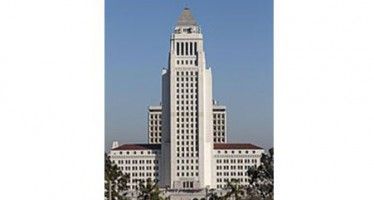Leg committee hearing: Prop. 30 a loser
 Editor’s note: This is the first in a series of articles on the propositions on the November ballot.
Editor’s note: This is the first in a series of articles on the propositions on the November ballot.
Oct. 8, 2012
By Dave Roberts
Proposition 30 is either a vital lifeline for budget-ravaged schools and social services. Or it’s unnecessary taxation by a government with a record of wasting money that will accelerate the exodus of residents and businesses out of state. It would increase sales taxes a quarter cent; and boost income taxes up to 3 percentage points on those making $250,000 or more a year. The top income tax rate would rise to 13.3 percent, the highest state rate in the nation.
Those were the contrasting views of numerous Democrats, liberals and education officials supporting Prop. 30, and a couple of Republicans and a taxpayer advocate opposing it at the Assembly Budget Committee’s recent informational hearing.
The latest Field poll showed Prop. 30 losing support, with just 51 percent saying they will vote for it, down from 54 percent in July. Forty percent believe they are already over-taxed.
Prop. 30 is expected to generate about $6 billion annually for four years beginning in 2013, after which the sales tax hike expires. The income tax hike on top earners continues for three more years after that. The actual amount generated could be a couple billion dollars more or less than $6 billion, depending on how the economy is doing, according to legislative analyst Mark Whitaker. The Legislative Analyst’s Office does not factor in the ramifications of residents and businesses leaving the state as a result of higher taxes.
Prop. 30 is competing on the ballot with Proposition 38, an income tax hike on nearly all Californian earners lasting 12 years that is projected to generate about $10 billion annually in initial years, with most of the money slated for schools. If both propositions receive a majority of votes, only the one receiving the most votes would take effect.
League of Women Voters
Arguing in favor of Prop. 30 at the committee hearing was Trudy Schafer, representing the League of Women Voters of California.
“Californians recognize that education and other services like health care, child care, the courts have all been cut to the bone,” said Schafer. “Prop. 30 begins to move California toward financial stability and adequate funding for all the services that we want from our government. We can’t continue to cut vital public services like schools and public safety. After years of such cuts, our schools, our universities, public safety services and others are at the breaking point. We just can’t continue to do this and still keep an economy that is strong, well informed, well educated for the next generation.”
School funding has been cut $20 billion in the last four years, resulting in 30,000 teacher layoffs, according to Schafer. She warned, “If Prop. 30 is not enacted, schools would be forced to shorten the school year, lay off thousands more teachers, increasing class sizes perhaps by another 20 percent, stop buying textbooks and increase community college tuition even more. So we need to stop those things.”
Jarvis group
Making the case against Prop. 30 was David Wolfe, representing the Howard Jarvis Taxpayers Association. He argued that calling Prop. 30 a “temporary” tax hike is deceptive because it lasts seven years and it’s likely there would be an effort to extend it at that time, as occurred with the failed Prop. 1A tax extension effort in 2009. Wolfe also pointed out that Prop. 30 would do nothing to solve California’s problem of unpredictable levels of tax revenue from year to year.
“Prop. 30 will not fix our progressive income tax system that created our current structural budget problem,” he said. “In fact, by adding three new brackets to the seven already in place it makes the problem worse. Already the top 144,000 taxpayers in the state, the top 1 percent, pay 37 percent of the total personal income tax revenue that the state receives. And this is a problem that Proposition 30 does nothing to address. Everyone knows that the number one problem with California’s tax structure is volatility. And even the governor admits that Proposition 30 makes this volatility problem much, much worse.”
Wolfe argued that raising income taxes on those making $250,000 or more will hurt small businesses, which typically file their taxes as personal instead of corporate income. “This is something we can ill afford with 2 million Californians out of work right now,” he said.
California doesn’t exactly have a strong track record in spending tax dollars wisely, Wolfe noted.
“It’s very difficult to justify a $50 billion tax increase when one considers the amount of wasteful spending and lack of reforms that have been uncovered just this year alone,” he said. “Let’s start with high-speed rail. The Legislature authorized this year that $6 billion worth of bond money at an interest cost to taxpayers of $300 million a year go to build not a usable segment but a piece of track between Bakersfield and Merced.”
Wolfe also cited pension reform that is estimated to save $30-$50 billion over 30 years when the state’s unfunded pension liability has been estimated at $500 billion. “We would argue this is not reform, this is window dressing,” he said.
And he mentioned the budgetary “rainy day fund” that was supposed to be on the 2012 ballot but instead was moved to 2014 after Democrats reneged on their agreement. There’s also the $54 million parks department slush fund that no one knew about while parks were threatened with closure.
“We can’t even manage the money that we have available,” said Wolfe. “And now taxpayers should give $50 billion more? No way.”
No new money
Ironically, although Prop. 30 is touted as helping schools, “it will actually provide no new money for educational programs,” he said. “And although it supports Prop. 30, this was clearly articulated by the California School Boards Association.”
Howard Jarvis has run a radio ad making that point and quoting the CSBA.
But Dennis Meyers, CSBA assistant executive director for governmental relations, told the committee that its words were taken out of context. “Proposition 30 is good for public schools; they are much better off with it than without it,” he said.
However, Meyers acknowledged that Prop. 30 won’t in fact provide new funding, but instead would simply restore some of the funding that has been cut in recent years.
“Without Prop. 30, schools are 14 percent below the amount of funding they received in 2007-08,” he said. “With Prop. 30, we are 9 percent [below]. It begins to build back what we lost over the last five budget cycles.”
One of the main points of contention in the two-hour Assembly committee hearing focused on whether California’s government is actually spending more currently than it has in the past. Brian Nestande, R-Palm Desert, said the budget cuts have been overstated because many are only temporary.
“They are almost illusionary because they happen one year to the next and then go right back,” he said. “Your overhead stays the same, basically. But as far as spending overall, spending is up overall. I’m not going to argue that these aren’t hard choices. But the point of fact is that if you factor in the use of special funds, it’s $20-30 billion more than it was a couple years ago. Federal monies, tens of billions of dollars more. Money that the state spends from the federal government, from special funds, from our general budget is up every year since I’ve been here. That’s just a fact.”
That assertion threw the Democrats on the committee into a tizzy. One after another cited cuts to schools, the courts, health care and a plethora of social service programs, which are all paid out of the General Fund.
But Nestande is correct about the increase in overall spending, according to figures from the state Department of Finance. Total state spending in the 2012-13 budget is $225.4 billion. That includes $91.4 billion in the General Fund, $39.4 billion in special funds, $11.7 billion in bond funds and $82.9 billion in federal funds. It’s true that General Fund spending is down from its high of nearly $103 billion in 2007-08. But total spending is at an all-time high. It’s now $31 million, or 16 percent, higher than the state spent in 2007-08, and has more than doubled in the past 14 years.
Nestande argued that what’s really needed in California is an overhaul of the tax system, moving toward a consumption tax.
“Economists agree, right or left, a consumption-based tax is the best taxing system for an economy,” he said. “You get more revenue into the state by allowing the economy to grow and not having this disproportionately heavy income tax, heavy sales tax, which harms the economy and inhibits growth and inhibits revenue to the state.”
Related Articles
L.A. changes election dates
Occasionally an election itself epitomizes a political situation. That was the case Tuesday with the Los Angeles primary. The main
Hillary Clinton moves to consolidate support of CA Dems
Sensing an opportunity to shore up her base and fuel a resurgence, Hillary Clinton’s campaign has moved swiftly to consolidate
The Ballad of John Nunez
Once upon a time — okay, in 1996 — there was a Garvey school board member named John Nunez. He




